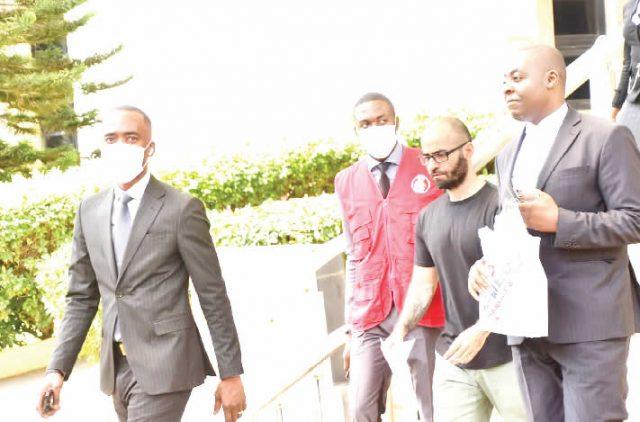The Nigerian government, under President Bola Ahmed Tinubu, dismissed criminal charges against Binance executive Tigran Gambaryan on October 23, 2024. Gambaryan had been in detention since February 2024, facing allegations of money laundering, tax evasion, and currency speculation.
During the court proceedings, the lead prosecutor, R.U. Adaba, representing the Economic and Financial Crimes Commission (EFCC), asked Judge Emeka Nwite to withdraw the charges against Gambaryan. She cited “critical international and diplomatic reasons,” emphasizing concerns over his declining health in detention. Once released from Kuje Correctional Centre, American officials in Nigeria quickly arranged an emergency flight, transporting him back to the United States.
How the U.S. Secured Gambaryan’s Release
Sources revealed that months of intense diplomatic negotiations between Nigeria and the U.S. government preceded this development. Top American officials, including then-U.S. President Joe Biden, actively pushed for Gambaryan’s release. They engaged in formal letters, urgent phone calls, and virtual meetings to persuade Nigerian officials to drop the charges.
Gambaryan, Binance Holdings Limited’s head of financial crime compliance, was arrested alongside Nadeem Anjarwalla, the company’s Africa regional manager, on February 26, 2024. Nigerian authorities detained them for allegedly refusing to cooperate in an investigation into how cryptocurrency exchanges, including Binance, were affecting Nigeria’s economy.
The Nigerian government claimed Binance facilitated $21.6 billion worth of transactions in 2023 but failed to share crucial data with regulators. Official documents suggested Binance was evading taxes and possibly enabling illicit financial activities, raising national security concerns.
As a result, both the EFCC and the Federal Inland Revenue Service (FIRS) launched separate legal cases against Binance and its executives. The Nigerian authorities saw the prosecution as a way to enforce compliance and prevent the misuse of digital platforms for illegal transactions.
U.S. Pressure on Nigerian Officials
Shortly after the legal process began, the U.S. government intervened. The American Ambassador to Nigeria, Richard Mills Jr., reached out to Nigeria’s Ministry of Foreign Affairs, requesting Gambaryan’s release on humanitarian grounds. He also engaged with the Office of the National Security Adviser, the Ministry of Finance, and even the Presidency to secure his freedom.
A source close to the matter stated: “The U.S. didn’t care that Gambaryan and Binance were facing charges for tax evasion and money laundering. They just wanted him released because he’s an American citizen, disregarding Nigeria’s legal process.”
When Nigerian officials refused, the U.S. Embassy escalated the matter to Washington, where senior American officials took over. In May 2024, then-U.S. Secretary of State Anthony Blinken discussed Gambaryan’s case with Nigeria’s Foreign Minister, Yusuf Tuggar. A month earlier, Deputy Secretary of State Kurt Campbell had also raised the issue with Nigeria’s National Security Adviser, Nuhu Ribadu. Other top U.S. officials involved in the push included National Security Adviser Jake Sullivan, Assistant Secretary of State for Africa Molly Phee, and FBI Director Christopher Wray. Wray even visited Nigeria from June 12 to 14, 2024, though it remains unclear if the Binance case was part of his discussions with President Tinubu.
U.S. Congress Joins the Fight
As diplomatic efforts intensified, U.S. lawmakers also got involved. On June 4, 2024, members of the U.S. Congress wrote to President Biden, Secretary Blinken, and Roger D. Carstens, the Presidential Envoy for Hostage Affairs, urging them to prioritize Gambaryan’s release. They framed his detention as a hostage situation and pushed for his immediate return to the U.S.
On June 21, two U.S. legislators, French Hill and Chrissy Houlahan, traveled to Nigeria to meet with officials and visit Gambaryan in detention. A few weeks later, on July 10, Representatives Richard McCormick and French Hill presented a resolution in Congress demanding Nigeria release the Binance executive. The resolution also urged the U.S. government to use all available diplomatic channels to secure his freedom.
Nigeria Stands Its Ground
Despite persistent pressure, Nigerian officials stood firm. They reminded their American counterparts that the country’s legal system must be respected and dismissed claims that Gambaryan was a hostage.
One Nigerian official wrote in a confidential communication: “Gambaryan and Binance conducted financial services without the necessary licenses, operated without permits, failed to comply with the Money Laundering Act, and engaged in speculative trading without proper authorization. He is being legally detained for crimes committed by him and his company, not as a hostage.”
To reinforce its position, the Nigerian government instructed prosecutors to oppose Gambaryan’s bail applications. In May 2024, Judge Emeka Nwite of the Federal High Court in Abuja denied him bail, citing him as a flight risk. Despite appealing the ruling, Gambaryan filed a fresh bail application on October 11, but prosecutors challenged it again. The court dismissed the request, labeling it an abuse of process. Justice Nwite also ruled that Gambaryan had not proven that Nigeria’s prison healthcare system was inadequate for his treatment.
The Turning Point
The court’s rejection of Gambaryan’s bail on October 11 reinforced Nigeria’s commitment to upholding its laws despite U.S. pressure. Observers believe this decision forced the U.S. government to change its strategy, shifting toward more direct negotiations.
More details on the final diplomatic agreements that led to the charges being dropped are expected to emerge in the coming weeks.













